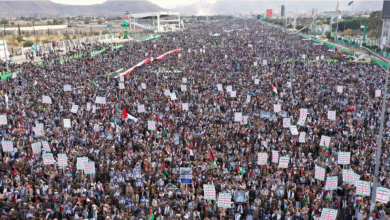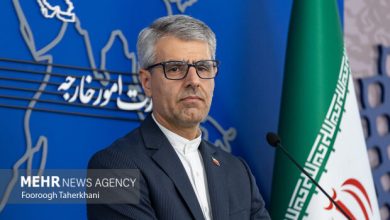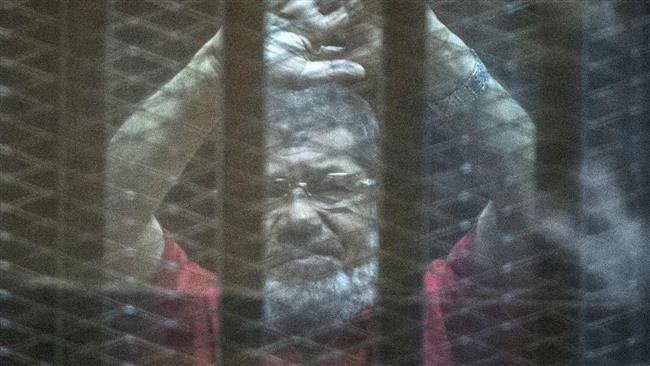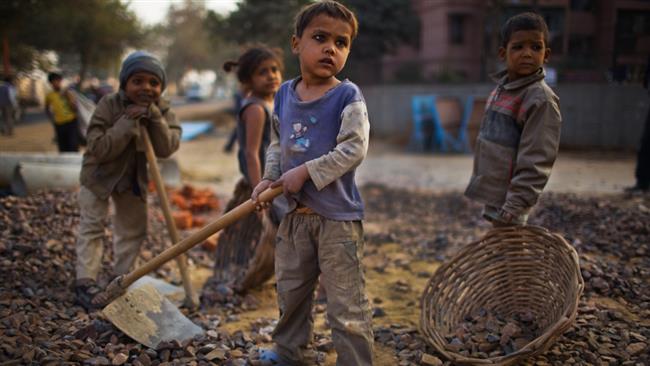Report: IOF arrested 471 Palestinians last month
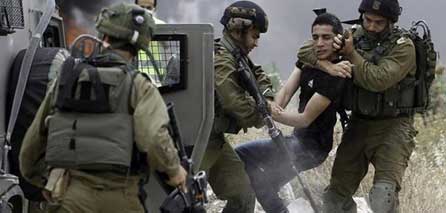
A group of local foundations catering for prisoners released on Thursday their monthly report on the continuous arbitrary detention of Palestinians by the Israeli occupation forces (IOF) and the continuous violations committed against the Palestinian prisoners in Israeli jails.
The report pointed out that the IOF had arrested during the past month of May 471 Palestinians, bringing the number of Palestinian citizens who have been detained since the beginning of the Jerusalem Intifada (uprising) in October 2015 to 5,805 Palestinians.
The report, by the Palestinian Prisoners’ Society, Addameer organization for Palestinian prisoners affairs, al-Mezan Center for Human Rights, Prisoners’ and Ex-prisoners’ Committee, pointed out that among the Palestinians detained during the month of May were 84 children, 15 women, 5 underage girls, and the deputy in the Palestinian Legislative Council, Abdel-Jabbar Fuqhaa.
The report showed that the highest percentage of arrests were in the city of Jerusalem, where the IOF arrested 111 Jerusalemite citizens.
Al-Khalil (Hebron) came in the second place in terms of number of detainees with 80 citizens, while it was 61 in the twin cities of Ramallah and el-Bireh, and 48 from Bethlehem, while the total number of detainees from Nablus was 45 citizens, 34 Palestinian citizens were detained from Jenin, 24 from Tulkarem, 14 from Qalqilya, 20 were from Salfit, Tubas, and Jericho, as well as 34 citizens detained from the Gaza Strip.
The number of prisoners in Israeli jails thus rose to about 7,000 prisoners, including more than 330 children, 71 women, 15 minor girls, and seven PLC deputies as well as nearly 750 administrative prisoners.
The report also pointed out that the IOF issued 156 administrative orders during the month of May, including 40 new orders.
The report addressed the cases of detention in the Gaza Strip, pointing out that most of the detainees were fishermen.
The report mentioned the cruel and degrading treatment the detainees are subjected to during the detention and interrogation process.
The report also reviewed the cases of at least eight prisoners who had launched a hunger strike during the month of May 2016 in protest against the systematic violations committed against them in Israeli prisons.
The report then tackled what the foundations documented on policies and violations practiced by the Israeli prisons administration against the prisoners on hunger strike.
The report pointed to the suffering of the prisoners because the Israeli prison service (IPS) uses the so-called “Bosta” for transferring them and the suffering it causes to the prisoners who are subjected to frequent transfers between prisons, hospitals, and courts’ sessions.
The prisoners are transferred by a vehicle called “Bosta”, which is made of metal, extremely hot in summer and very cold in winter. The transfer process via Bosta lasts between eight hours to three days from leaving prison to coming back.
The prisoner might be detained in the waiting departments that lack the minimum sanitary conditions in more than one prison before reaching the court or the hospital.
In this context, the report pointed to the case of the prisoner Rami Sabarneh of al-Khalil, who has been assaulted by the IOF soldiers on returning to the Raymond prison via “Bosta”, after undergoing appendectomy operation in one of the Israeli hospitals resulting in dehiscence of his wound.
The report addressed the continuous use of torture and intimidation by the IOF as a policy to abuse children even after they are taken to the detention and interrogation centers.
These policies include: threatening of detention for a long time, the arrest of family members, or keeping them in the same place for a long time.
In addition, the IOF practices physical torture on them such as beatings and handcuffing to the investigation chair, and other cruel practices.
With regard to the continued use of arbitrary administrative detention orders against Palestinian prisoners, the report referred to the case of the captive Imad Barghouti, who had been arrested by the IOF in April, 2016, addressing in detail the course of his trial, which proves that his arrest was arbitrary and without any evidence that convicts him, and that Israeli courts do not aim to achieve justice in any way but rather they confer legal form on the decisions of the Israeli security services.
The case of the captive Imad al-Barghouthi proves that the occupation uses the administrative detention as a tool for repression, punishment, retaliation and a violation of freedom of opinion and expression.
The four foundations renewed their condemnation of the gross and systematic Israeli violations of rules of the international law against the Palestinian detainees.
On the other hand, they express their pride in the struggle of the Palestinian prisoners in the face of their enemy.
The foundations emphasized the continuation of their efforts in the defense of Palestinian prisoners and to expose the abuses committed against them.
The foundations renewed their assertion that the issue of prisoners, in addition to being a Palestinian national issue, is a humanitarian and moral issue that Arab and international efforts must unite and join to exert maximum pressure on the occupation state to stop its gross and systematic violations of the international human law and human rights principles, and to seek release of Palestinian prisoners.
In this context, the four foundations called on the civil society organizations, international human rights organizations, political parties and Liberals of the world to adopt serious action to expose the violations of the rules of international law committed by the IOF.
The institutions called on the United Nations and the international community to act to stop the grave violations against Palestinian detainees, especially the continued practices of torture and other cruel and degrading treatment, and the continuation of the systematic violations of rights of children, whether through arbitrary arrests committed against children or during the interrogation and detention process.
They also called for urgent action to compel Israel to abide by its legal obligations to respect the rights of detainees including: protection from torture and ill-treatment, provision of the detainees’ needs including health care and family visits.
They finally called for exerting pressure on Israel to immediately release the detained children and women and all detainees held without trial or charge.
